Covid-19: Furlough 'kick in teeth' for firms and 'Covid jab scammers nearly got me'
- Published
Here are five things you need to know about the coronavirus pandemic this Saturday. We'll have another update for you on Sunday.
1. 'Frantic' efforts to fix NI Covid passport
The official heading up Northern Ireland's Covid vaccine certificate system has said there are "frantic" continued efforts to resolve issues with it. Dr Eddie O'Neill, from Northern Ireland's Department of Health, said staff worked until 05:00 BST on Friday to try to fix problems. But the system, which was temporarily suspended on Tuesday, did not resume as planned on Friday morning. It had been out of action due to a risk of some applicants' data being wrongly sent to other users. It was hoped it would be back up by early afternoon, but as of midnight the service was still unavailable. The CovidCertNI allows people to prove they are double-vaccinated when they travel abroad.
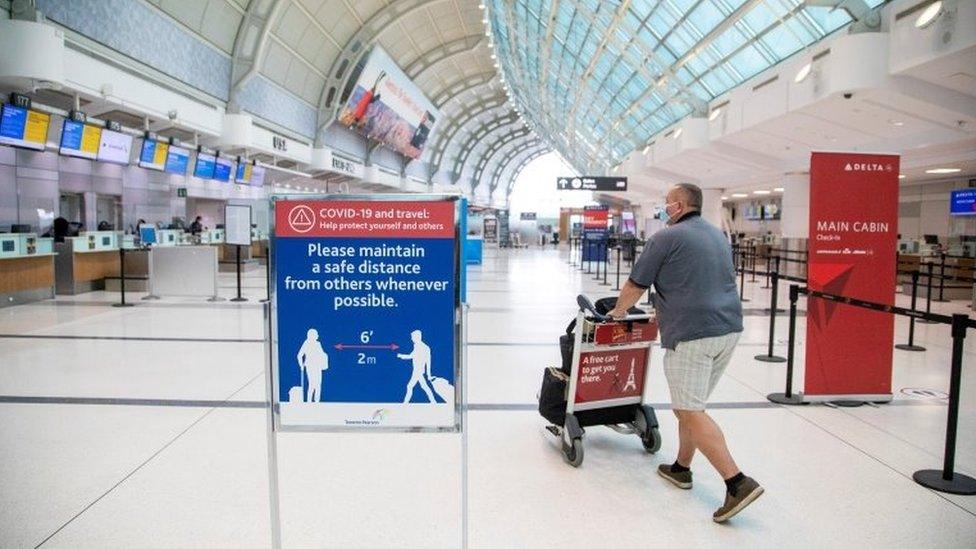
Vaccine certificates are required by people who are travelling abroad and need to prove their vaccination status

2. 'Covid vaccine scammers nearly got me'
When retired children's social worker Sioban Moore received an email inviting her for a Covid-19 vaccination, she was only too keen to accept. The message said that unless she responded within 12 hours, the opportunity would disappear and be given to someone else. She was asked for her personal information - such as her date of birth and phone number - before being asked for her bank details. It was only when she got her credit card out of her purse that the "penny dropped" and she narrowly avoided being scammed. Not everyone has been so lucky. You can read more here.
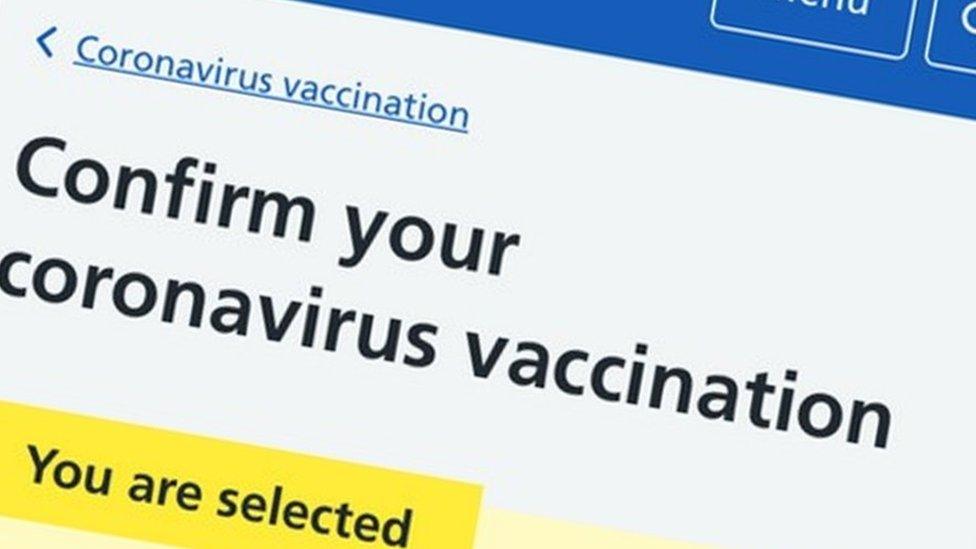
The fake emails purporting to be from the NHS can look convincing at first glance

3. Where have all the workers gone?
From hospitality to road haulage, firms say they can't get staff. Some are wondering whether Covid-19 is sparking an historic rebalancing of power between the bosses and the workers. The pandemic has prompted some people to reconsider their priorities, to retire early or to leave employment to start their own business; while many foreign workers in the UK have decided to return home to wait things out. So what has been happening to the labour market? You can read more here.
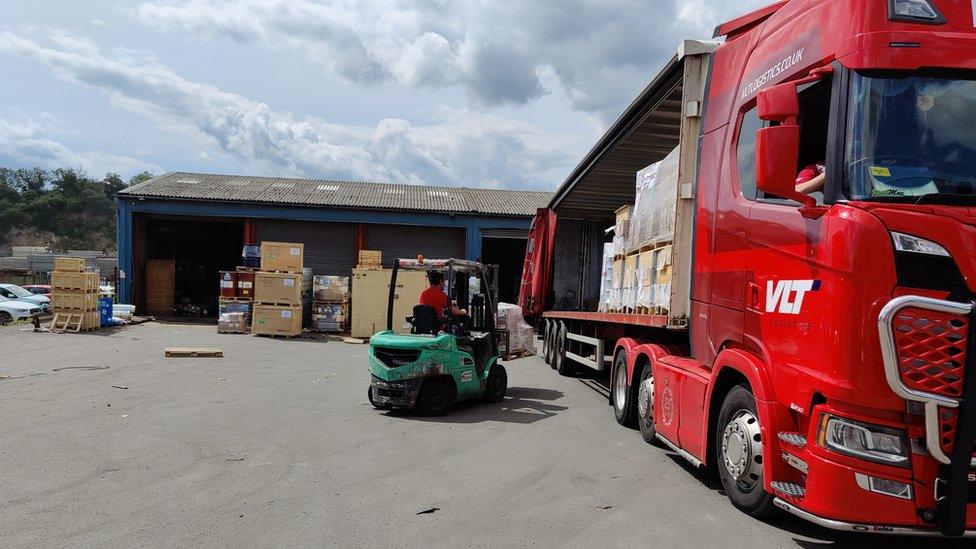

4. Furlough 'kick in teeth' for recovering firms
In Wales, unions have warned that making businesses contribute more towards furloughed workers' wages could push firms "off a cliff edge" as they try to recover from the pandemic. Under the furlough scheme, which came into force in spring last year, the government initially paid 80% of the wages of people who could not work - up to a monthly limit of £2,500. But as the initiative has been gradually winding down with the easing of lockdown restrictions, employers have been asked to pay 10% towards the wages of staff - which is due to rise to 20%. The TUC in Wales says the move could endanger jobs, and has called for it to be delayed. The UK government said the scheme was in place until September.
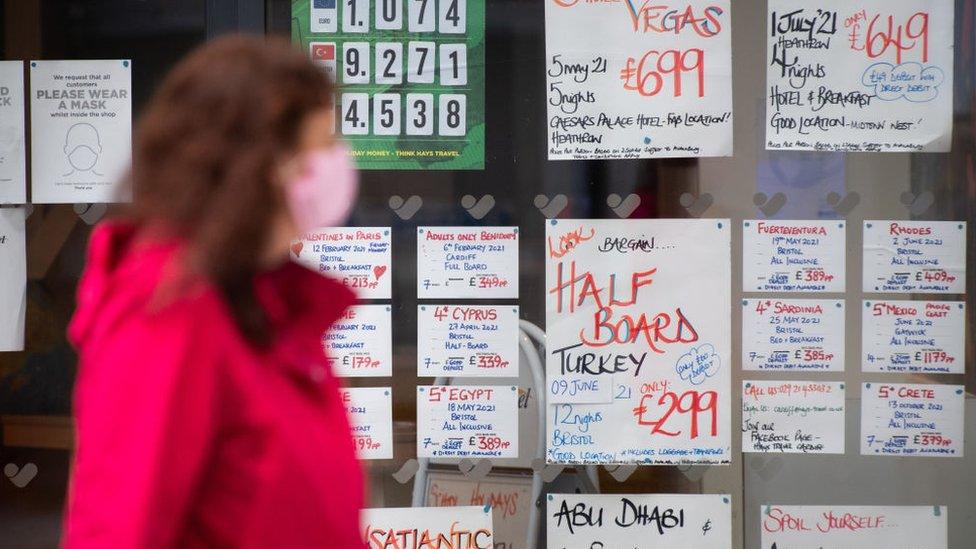
The travel industry is one sector which still has high numbers of staff on furlough, figures show

5. Woman allowed to end hotel quarantine to see dying father
A woman who travelled from red-list Turkey to see her dying father no longer has to quarantine in a hotel after authorities ruled that she had an "exceptional" case - but has criticised the lack of mental health support she experienced during the process Claire Herriot, from Glasgow, flew home to visit Gordon Herriot in hospital after being granted a one-off compassionate visit. And she has since been told she can have two further visits to her father if she continued to test negative for Covid. Ms Herriot has called for more support for people in similar situations. She says being kept in a hotel had added to her trauma - and she was concerned that she was only able to navigate the system of seeking an exemption because of her experience and contacts as a TV producer.
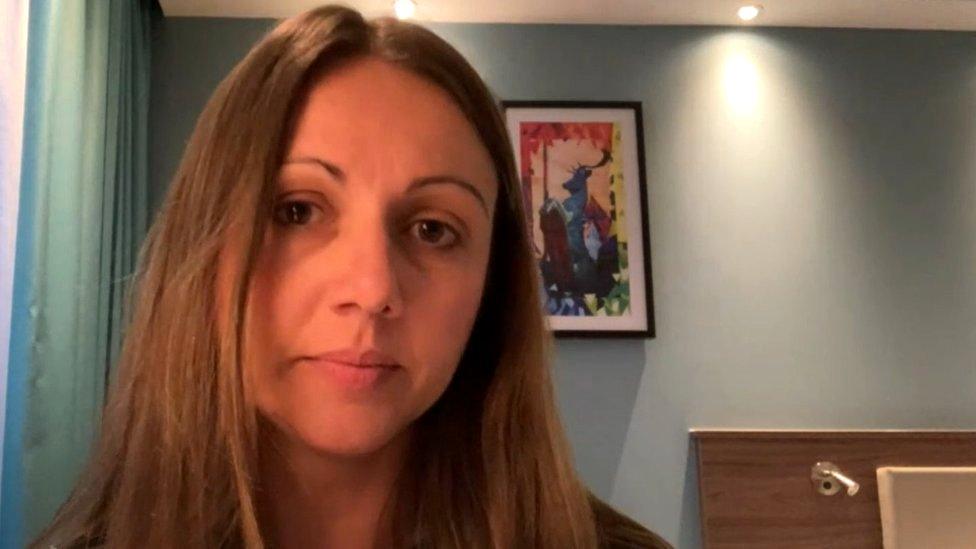
Claire Herriot is in quarantine in an Edinburgh hotel after flying to Scotland from Istanbul
And don't forget...
Here's a reminder of the rules of entry for some holiday hotspots including Spain and Portugal.
Find more information, advice and guides on our coronavirus page.


What questions do you have about coronavirus?
In some cases, your question will be published, displaying your name, age and location as you provide it, unless you state otherwise. Your contact details will never be published. Please ensure you have read our terms & conditions and privacy policy.
Use this form to ask your question:
If you are reading this page and can't see the form you will need to visit the mobile version of the BBC website to submit your question or send them via email to YourQuestions@bbc.co.uk, external. Please include your name, age and location with any question you send in.